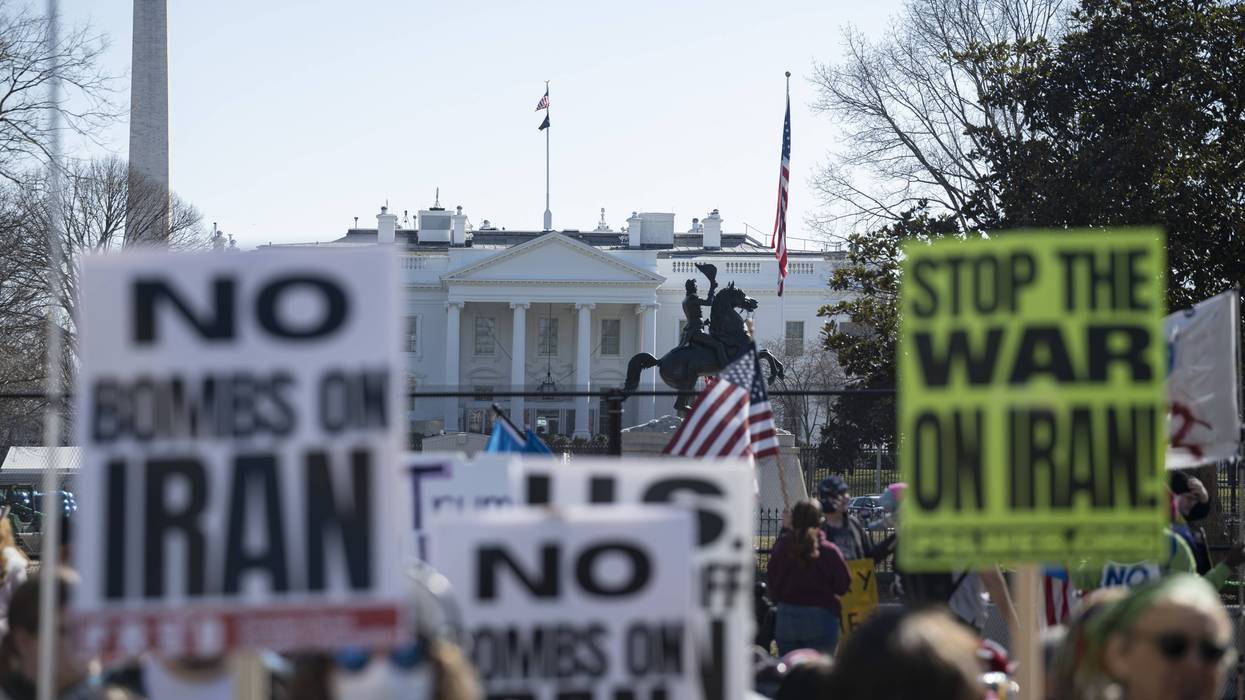November, 24 2008, 09:42am EDT

Protect Domestic Workers From Violence
Many Nations Have Failed to Stem Mental, Physical, Sexual Abuse
WASHINGTON
Many migrant and domestic workers still face abuse and exploitation in Middle Eastern and Asian countries because governments have failed to adopt measures needed to protect them, Human Rights Watch said today ahead of the International Day for the Elimination of Violence against Women on November 25.
Few domestic workers have access to the justice system in the countries where they work, and even those who are able to make complaints of physical or sexual violence rarely receive redress, Human Rights Watch said.
"There are countless cases of employers threatening, humiliating, beating, raping, and sometimes killing domestic workers," said Nisha Varia, deputy director of the women's rights division of Human Rights Watch. "Governments need to punish abusive employers through the justice system, and prevent violence by reforming labor and immigration policies that leave these workers at their employers' mercy."
Millions of women from countries including Indonesia, Sri Lanka, the Philippines, and Nepal are domestic workers in Saudi Arabia, Kuwait, the United Arab Emirates, Lebanon, Singapore, Malaysia, and other countries throughout the Middle East and Asia. Most countries exclude domestic workers from protection under their labor laws, leaving domestic workers little remedy against exploitative work conditions.
Domestic workers are also at heightened risk of abuse because of restrictive immigration-sponsorship policies that link their visas to their employers. Employers control a worker's immigration status and ability to change jobs, and sometimes whether the worker can return home. Many employers exploit this power to confine domestic workers to the house, withhold pay, and commit other abuses.
Authorities receive thousands of complaints of labor exploitation or abuse each year. While most involve unpaid wages, food deprivation, and long working hours with no rest, a significant number allege verbal, physical, and sexual abuse. But many cases are never officially reported, due to domestic workers' confinement in private homes, lack of information about their rights, and employers' ability to deport them before they can seek help.
Some law enforcement authorities have begun to prosecute and punish abusive employers, although to varying degrees. In 2008 in Singapore, several employers have been convicted of beating domestic workers, receiving sentences ranging from three weeks to 16 years in prison. In mid-November, a man was sentenced in Malaysia to 32 years in prison for raping a domestic worker, and his wife received six years for abetting the crime.
But criminal justice systems often continue to expose abused domestic workers to further victimization and give them no - or only severely delayed - redress:
- In May 2008, a Riyadh court dropped charges against a Saudi employer who abused Nour Miyati, an Indonesian domestic worker, ignoring both the employer's confession and compelling physical evidence. Nour Miyati suffered daily beatings and was abused so badly that her toes and fingers were amputated after developing gangrene. During the three years of legal proceedings, she remained stuck in an overcrowded embassy shelter unable to work or return to her family in Indonesia. At one point, she also was sentenced 79 lashes for changing her testimony, though the sentence was later reversed.
- On November 27, 2008, a Malaysian judge is to announce the verdict in the four-year case against Yim Pek Ha, the employer of an Indonesian domestic worker, Nirmala Bonat. In 2004, images of Bonat's badly burned and injured body shocked Malaysians. Bonat also had to stay in an overcrowded embassy shelter for years without being allowed to work and had to defend herself from charges of inflicting the abuse herself.
"2008 marked a year of missed opportunities,'' Varia said. "While most governments have started to think about some level of reform, many of these discussions have stalled. Providing comprehensive support services to victims of violence, prosecuting abusers, and providing civil remedies are reforms that just can't wait."
Human Rights Watch recommends that, in order to curtail all forms of violence against migrant domestic workers, governments should:
- Abolish or reform immigration-sponsorship policies so that domestic workers' visas are no longer tied to their employers;
- Develop protocols and train law enforcement officials on how to respond to domestic workers' complaints appropriately, and how to investigate and collect evidence in such cases;
- Prosecute perpetrators of psychological, physical, and sexual violence;
- Expedite criminal cases involving migrant domestic workers, who must often wait for a resolution for several months or years while confined in a shelter, and ensure they have legal permission to work during the interim period;
- Create and widely disseminate contacts for confidential, fully staffed and toll-free hotlines to receive reports of abuses against domestic workers;
- Create comprehensive referral and support services, including health care, counseling, shelter, consular services, and legal aid.
Human Rights Watch is one of the world's leading independent organizations dedicated to defending and protecting human rights. By focusing international attention where human rights are violated, we give voice to the oppressed and hold oppressors accountable for their crimes. Our rigorous, objective investigations and strategic, targeted advocacy build intense pressure for action and raise the cost of human rights abuse. For 30 years, Human Rights Watch has worked tenaciously to lay the legal and moral groundwork for deep-rooted change and has fought to bring greater justice and security to people around the world.
LATEST NEWS
Trump's Unprovoked War on Iran Triggers 10% Spike in Global Oil Prices
"When global energy security can be upended by a single flashpoint, it shows how unstable and risky our dependence on oil and gas is," said one critic.
Mar 02, 2026
President Donald Trump's unprovoked, unconstitutional, and politically unpopular war against Iran is about to cause pains for Americans at the gas pump.
CNBC reported on Monday that Brent crude oil prices surged by 9.3% to a 52-week high of $79.40 per barrel, while US West Texas Intermediate crude oil prices spike by 9% to $73.10 per barrel.
This spike in oil prices is projected to directly lead to an increase in gas prices in the coming days.
Petroleum industry analyst Patrick De Haan noted in a Monday update on his Substack page that gas prices in the US had already risen by roughly six cents in the last week, and that war with Iran would drive these prices higher.
"Developments surrounding Iran—particularly any threat to regional production or shipping flows—are likely to remain the dominant driver of oil prices," wrote De Haan, "and could keep crude elevated or push it higher if tensions intensify further."
A Sunday research note from Wells Fargo cited by CNBC drew attention to the importance of the Strait of Hormuz, which the Iranian government closed off over the week and which is used to transport roughly 20% of the global supplies of petroleum and liquified natural gas.
According to Wells Fargo, a "prolonged" closure of the strait would result in "an oil shock to $100+ per barrel," which it described as the "worst-case scenario" for global stock markets.
In addition to closing off the Strait of Hormuz, Iran has also been launching attacks on other nations' energy infrastructure.
According to a report from Bloomberg, Saudi Arabia’s largest oil refinery at Ras Tanura had to cease operations on Monday after being struck in a drone attack.
"An attack on major energy infrastructure is a nightmare scenario for global markets," noted Bloomberg, "with maritime traffic through the crucial Strait of Hormuz all but halting."
Olivia Langhoff, managing director at climate justice organization 350.org said that the global economic disruptions being caused by the Iran war shows the folly of continuing to rely on fossil fuels for energy needs.
"When global energy security can be upended by a single flashpoint, it shows how unstable and risky our dependence on oil and gas is," Langhoff said. "Renewable energy provides homegrown power that remains secure and affordable regardless of geopolitical shocks."
The increase in gas prices comes at a time when US voters have been expressing widespread dissatisfaction with the economy under Trump, as polls show voters have been particularly anxious about the prices of groceries and utilities, among other essentials.
Keep ReadingShow Less
Less Than 25% of Americans Support Trump Attack on Iran: Poll
"If this goes on... this is going to become a political disaster," said one foreign policy expert.
Mar 02, 2026
President Donald Trump's war in Iran is extraordinarily unpopular, according to a poll conducted shortly after the US and Israel carried out massive strikes on the country Saturday.
The survey, conducted by Reuters/Ipsos, found that just 27% of voters approved of the strikes, which have killed at least 555 Iranians as of Monday morning and resulted in retaliation from Iran that has killed at least four US service members, with more casualties expected according to a spokesperson for the US Joint Chiefs of Staff.
Meanwhile, 43% of respondents disapproved of the military action, while 29% said they were not sure.
A majority of Republicans said they approved of the strikes, with 55% expressing support. Still, 13% disapproved, and a noteworthy 31% said they were unsure.
Approval is dismal with nearly everyone else. Only 19% of independents expressed support compared to 44% who disapproved. And though Democratic leaders in Congress have done little to stand in the way of the strikes, their voters are overwhelmingly against them: 74% said they disapproved, while just 7% approved.
The poll reflects a wider skepticism of US military intervention, with 56% of respondents saying the president was too quick to deploy military force in recent months, including in Venezuela, Syria, and Nigeria.
Compared with previous US military interventions in the Middle East, such as the invasions of Iraq and Afghanistan, which—at least at their outset—enjoyed broad support from the American public following intense government efforts to drum up support, there has been little effort by the Trump administration to define the purpose of war with Iran.
Trump's justification for launching the war has shifted wildly since he began amassing troops in the region. Trump has most recently said the strikes were intended to stop an "imminent threat" from Iran; meanwhile, the Pentagon has told Congress there was no sign Iran was planning an attack unless the US did so first.
The president previously said his push for war was to prevent Iran from developing a nuclear weapon, an assertion at odds with his claim that his strikes in June "obliterated" the country's nuclear capabilities.
Trita Parsi, executive vice president of the Quincy Institute for Responsible Statecraft, told Al Jazeera that Trump's shifting explanations reek of "desperation."
"It's very clear that Trump has a tremendous difficulty finding a justification for this war of choice that he's embarked on," he said. "The reality is that if this goes on for another week or two, this is going to become a political disaster."
"So now he's suddenly, desperately, using all kinds of justifications: Liberating the Iranian people, Iran is fighting against civilization," Parsi said. "If he actually had a case, he would have stuck to that point and made it clearly. But he doesn't have one."
Keep ReadingShow Less
Call Grows to Impeach Trump, 'The Most Dangerous Man on the Planet'
"Trump’s illegal war on Iran and the rule of law," said one pair of campaigners, "establish an intolerable pattern of egregious abuses of power, directly threatening our constitutional order, our safety, and our way of life."
Mar 02, 2026
After the unprovoked bombing of Iran over the weekend by the United States and Israel—strikes that included the unlawful assassination of Iranian Supreme Leader Ali Hosseini Khamenei—the call for US President Donald Trump to be impeached and removed from office has grown as the straightest path to hold the US leader to account for the attacks which policy and human rights experts have condemned as a serious war crime.
With a regional war in the Middle East that was already boiling from Gaza to Lebanon and from Syria to Yemen now exploding in the wake of the US-Israeli attacks on Iran, Globe and Mail columnist Debra Thompson on Sunday called Trump "the most dangerous man on the planet."
"Rather than ending wars," Thompson notes, "Trump has initiated military action eight times, carrying out attacks in seven countries (Syria, Iraq, Iran, Nigeria, Yemen, Somalia, and Venezuela) in 2025." Such a pattern of violence and warmongering should make clear that failure to restrain Trump has only emboldened him.
"The recurring danger in this latest presidential aggression is that there are no guardrails, no constraints, and no post-hoc justification," writes Thomson, "other than that Mr. Trump is the President of the United States and can do whatever he wants."
But American presidents cannot simply do whatever they want. According to a Reuters/Ipsos poll out Sunday, less than 25% support the president's aggression against Iran. In the first wave of the US military attack, an Iranian school for girls was bombed, killing over 108 civilians, mostly children.
While some congressional lawmakers are pushing for a vote this week on a War Powers Resolution to curtail US military operations against Iran, others are demanding more robust action from Congress to bring Trump's war-making to an end.
"Under Article I, Section 8 of the U.S. Constitution, only Congress has the power to declare war, as well as to raise and support armies, provide and maintain a navy, and fund and regulate the military," declared novelist and political activists Stephen King on Saturday. "Impeach the SOB."
Mike Hersh and Alan Minsky, respectively the communications director and executive director of the Progressive Democrats of America, argued in a Sunday op-ed for Common Dreams that "Trump's illegal, unconstitutional war on Iran is not only a moral and humanitarian disaster, but also a profound constitutional crisis."
According to Hersh and Minsky:
Trump’s illegal war on Iran and the rule of law establish an intolerable pattern of egregious abuses of power, directly threatening our constitutional order, our safety, and our way of life. These intertwined crises cry out for an immediate, decisive response by the Congress and the US public.
Therefore, PDA demands that all members of Congress, Democrats, Republicans, and Independents alike, uphold their oath of office to defend our constitutional republic. The Constitution offers one and only one remedy when President a repeatedly breaks the law and arrogantly refuses to abide by the limits on the power clearly laid out in the Constitution. That remedy is impeachment, followed by removal from office.
Matt Duss, executive vice president for the Center for International Policy, said that US lawmakers, as well as the American people they represent, "must also be ready to hold the president and his administration accountable for this breach of US and international law."
"The failure to hold past presidents liable for war crimes and related violations of our own laws has helped lead to this dangerous moment, with a seemingly unrestrained president endangering millions of lives with impunity," warned Duss. "The forever wars and the imperial presidency must finally come to an end.”
Keep ReadingShow Less
Most Popular


